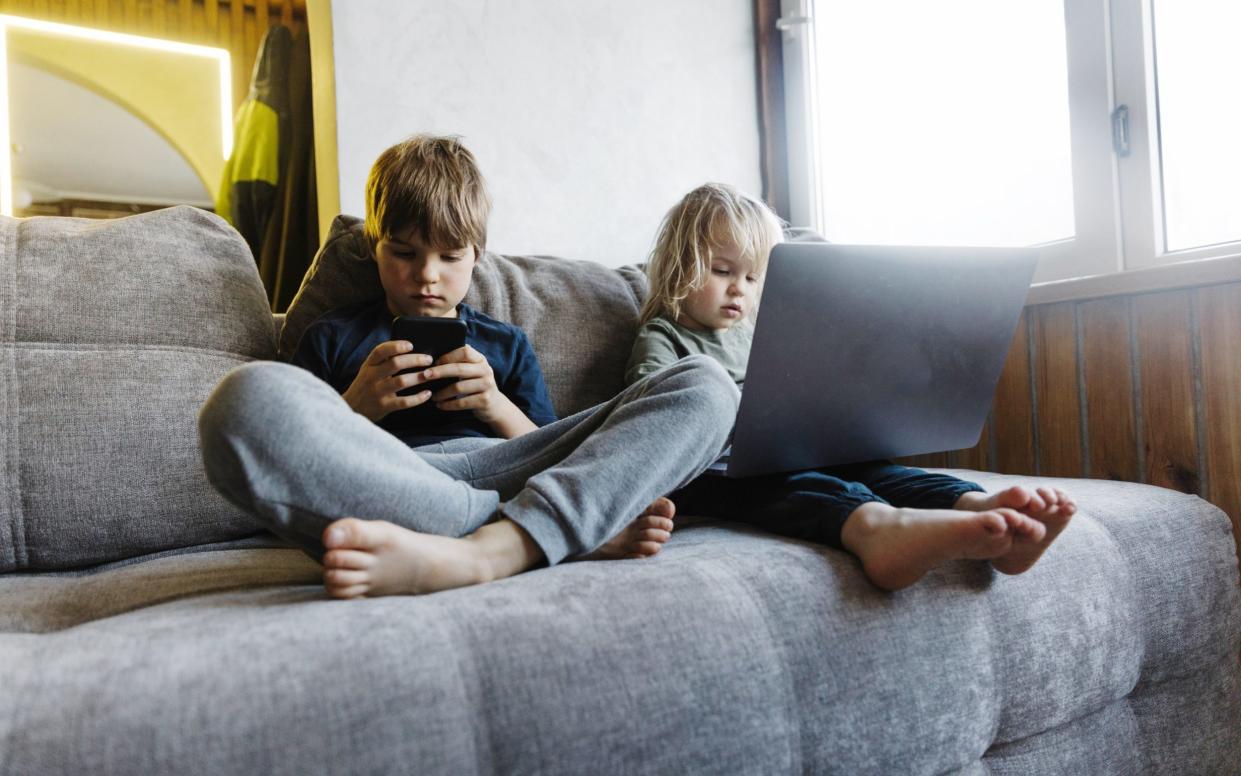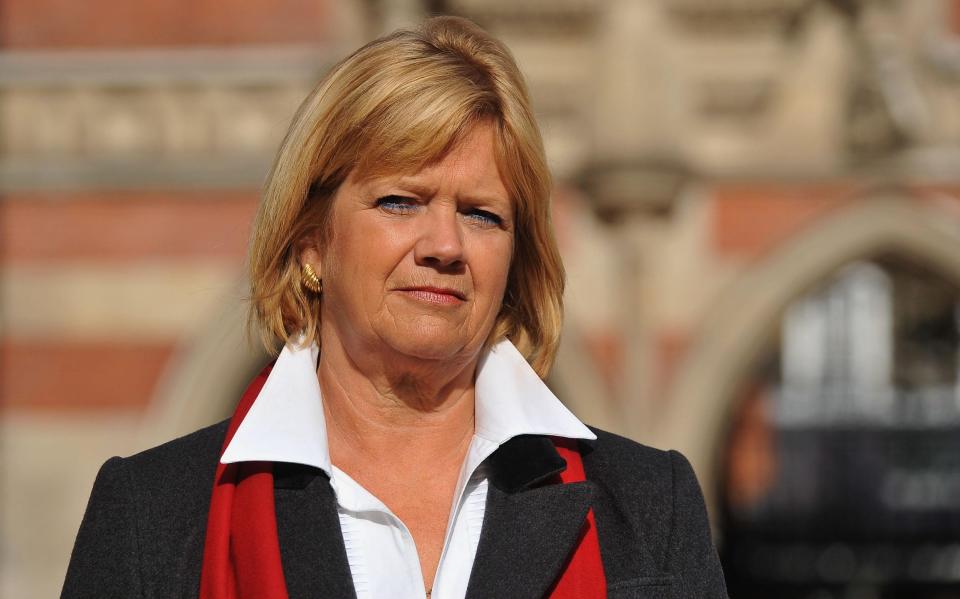Covid Inquiry to investigate impact of social media on children during lockdown

- Oops!Something went wrong.Please try again later.
The Covid Inquiry will examine children’s use of social media during the pandemic as it investigates the harms of lockdown on young people.
Baroness Heather Hallett launched the inquiry’s eighth investigation into the impact of the pandemic on children and young people on Tuesday after months of pressure.
Revealing details of the investigation for the first time, the inquiry confirmed that it would specifically examine the harms of lockdowns and school closures on children as well as their use of the internet.
Baroness Hallett has faced a backlash from leading children’s charities over the failure to launch a module examining the harms of the pandemics on children while prioritising other issues.
Save The Children and the Children’s Rights Alliance for England warned that the inquiry may not assess the harm of lockdown on children until six years after the school closures in March 2020.
As it announced its module on children and young people and a separate investigation on the economy on Tuesday, charities said that it must get to work “urgently” after months of failing to announce a timetable.
The inquiry, which has already cost more than £78 million, had until Tuesday to announce seven modules ranging from vaccines to procurement and Test and Trace.
It has only heard evidence for its first two modules assessing pandemic preparedness and decision-making during Covid and three regional modules in Scotland, Wales and Northern Ireland.

The first preliminary hearings for the children’s module will be heard later this year, but full evidence is unlikely to be heard until at least summer 2025.
Revealing the provisional scope to the children’s module, the inquiry said that it would include the extent to which young people were considered in preparing for the pandemic.
The inquiry will look at the impact of the pandemic on education, early years provision and also on children’s mental health. It added that it will also look at the “impact of the pandemic on children and young people in relation to their access to and use of the internet, social media and online resources”.
The effect on social services, children in care and safeguarding will also be examined and as well as young people within the criminal justice or immigration systems.
In letters to the inquiry, charities have cited growing evidence of the harms of lockdown on children, including surveys of teachers that found children forced to learn from home during the pandemic were still suffering from emotional and social development delays.
They said that nine in 10 primary school teachers said their pupils had experienced emotional and social growth delays as a result of prolonged periods of school closures during lockdown.
NHS figures have also shown that eating disorders among children have doubled in the last six years, which may have been fuelled by them spending more time online during lockdowns.
Risk of fading memories
Children’s charities have been calling since last year for the inquiry to launch an investigation on the harms of the pandemic on young people. The Telegraph revealed last August how more than 40 organisations had written to Baroness Hallett accusing the Inquiry of silencing children.
Following Tuesday’s announcement, Louise King, the director of the Children’s Rights Alliance for England and co-lead of Just for Kids Law, said: “We welcome the announcement from the Covid Inquiry today that it has opened the module which will investigate the impact of the pandemic on children although we are disappointed that it has taken so long to come,” she said.
“We know memories fade faster among children and it will be increasingly harder for the very youngest to recall their experiences of lockdown and the impact it had on them.”
She added that it must not allow hearings to be delayed or for the majority of evidence to be heard next year rather than by 2026.
“We now urge the Inquiry to get the bulk of these hearings done in 2025, or there is a risk that children’s experiences will not be considered until a full six years after the first lockdown began.
“Without urgency on the inquiry’s part we fear the strength of the information they receive from children will diminish and potential lessons for any future pandemic will be missed.”
Baroness Hallett said: “The pandemic affected children and young people in many different ways; they lost loved ones, academic opportunities, years of social development and interaction with family and friends.
“Every Story Matters – our nationwide listening exercise – is also collecting the stories of parents, carers, teachers and others who played such important roles in the lives of children and young people during that time.”
The Inquiry will hear a preliminary hearing on its investigation into vaccines and therapeutics on Wednesday.

